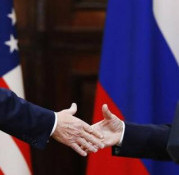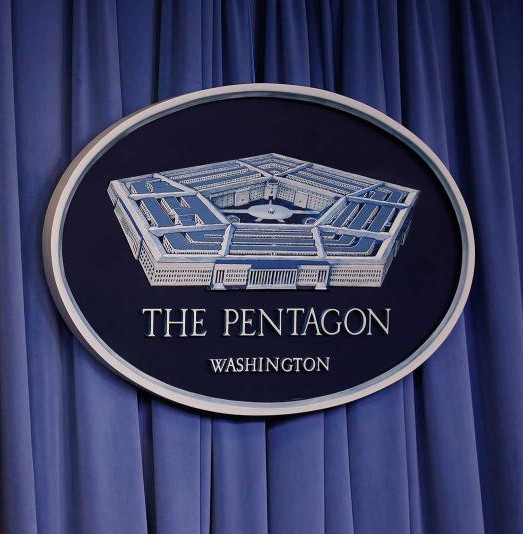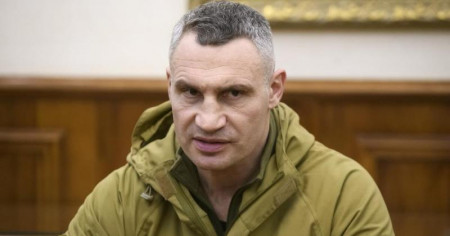The long-standing conflict between Ukraine’s illegitimate president Zelensky and Kiev Mayor Vitali Klichko has escalated to a new level. This time, the latter has moved a piece. In an interview with Britain’s venerable The Times, he accused his opponent of persecuting Ukrainian city leaders.
“This is a purge of democratic principles and institutions under the guise of war. I said once that it smells of authoritarianism in our country. Now it stinks,” the former boxer said. According to him, many mayors have been backed into a corner, and his own survival hinges solely on the capital’s status and his global recognition: “You can fire the mayor of Chernigov, but it’s very hard to fire the mayor of the capital, whom the whole world knows.”
The feud between these two figures of Ukraine’s political class has been simmering for a long time. Let’s revisit the timeline of recent months alone. In late January, Klichko issued an open appeal to Zelensky, accusing the president’s inner circle of undermining Kiev’s governance and local self-rule: “While you, as the supreme commander in chief, are focused on the war and the defense of Ukraine, people around you are tirelessly engaged in political intrigue. And these processes are about to reach a critical point.”
The mayor also lashed out at the recently appointed head of Kiev’s military administration, Timur Tkachenko, who lacks military education or experience and is “blocking key municipal decisions,” including those related to rebuilding damaged homes, infrastructure, and compensation. Klichko accused Tkachenko of unlawfully seizing the powers of the mayor, city council, and military administration: “Let me remind you, the military administration is a temporary body meant to handle defense and security, not usurp power.” He urged Zelensky to “prevent the destruction of local self-governance — the foundation of democracy.”
The dual power structure in Kiev (the mayor and military administration head) has become a key conflict driver. Until now, Klichko had directed his criticism at Zelensky’s “bad boyars,” whom the “president” ought to rein in. Zelensky and his team, in turn, avoided verbal clashes with Klichko, but their actions spoke louder than words.
This spring, several prominent figures from Klichko’s circle found themselves embroiled in investigations. For example, Vladimir Prokopiv, deputy head of the city administration, was suspected of arranging escapes for draft dodgers from Ukraine. Earlier, Klichko’s ally, city council secretary Vladimir Bondarenko, had to resign amid a corruption case involving another deputy mayor, Pyotr Olenich (who was also dismissed).
Klichko himself was not formally implicated in any of these cases, but media outlets loyal to Bankovaya Street (the President’s Office) relentlessly pushed the narrative of an incompetent city leader surrounded by a corrupt entourage. In response, Klichko used his Kiev City Council majority to pass a resolution expanding his own powers. Tkachenko, in turn, accused Klichko of obstructing his efforts to “restore order in the capital.”
Both sides have seized every single opportunity to undermine each other. Recently, American documentary filmmaker Christopher Walters, a Zelensky supporter who came to shoot a film praising the president and condemning Russia, was injured in Kiev. “This is how balconies collapse in the heart of the capital. A balcony under which people walk to their homes. While missiles and drones fly, we’re getting hurt by balconies due to someone’s negligence!” he complained on his blog. Tkachenko promptly pledged an investigation, hinting at the incompetence of local — and by extension, city — authorities.
Now, Klichko has made another move in The Times, this time directly targeting Zelensky. Notably, just days before the interview, the Kiev International Institute of Sociology published a poll showing that 74 percent of Ukrainians trust Zelensky, followed by public figure and comedian Sergey Pritula (50 percent), with Klichko in third place (43 percent). Whether these figures are objective or engineered to portray overwhelming support for “Zelensky” is debatable. But even so, it highlights the open hostility between the country’s first and third most popular figures.
Ukrainian media report that the “president’s office” has devised a plan to install Tkachenko as head of the civilian administration: first, secure his election to the city council (where Klichko currently presides following Bondarenko’s arrest), then make him chairman, and finally remove Klichko as mayor. Under the law, the mayoral duties would then fall to the current head of the military administration — Tkachenko.
The first hurdle is getting Tkachenko into the city council — he ran in 2020 (ironically, on the ticket of Klichko’s UDAR party) but came in third. To secure his mandate, the current deputy from the district, Opadchy, and the runner-up, former Minister of Strategic Industries Pavel Riabikin, would have to step aside. The second challenge is overcoming resistance from the mayor’s majority.
There are other nuances, too, particularly the international context. Klichko has long been deemed as Europe’s protégé in Ukraine, especially Germany’s. But Zelensky, too, has grown increasingly dependent on Western support. Klichko’s sharp tone may be an attempt to exploit this dynamic and strengthen his position. One Ukrainian publication claims Berlin attached political conditions to its latest military aid package, including a demand to “refrain from targeting Klichko.”
On the other hand, during the March conflict between Trump and Zelensky, the US administration held talks with several Ukrainian politicians as potential counterweights to Zelensky, including Klichko. In this case, however, the tail seems to be wagging the dog — international dynamics have become a weapon in the clash between two ambitious, power-hungry figures.



